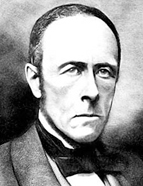

He was also captivated by the lyric poetry of Alphonse Marie de Lamartine and particularly the lyric poetry of German authors of the second half of the 18th century associated with the so-called Sturm und Drang movement, such as Friedrich Gottlieb Klopstock, Gottfried August Bürger and Friedrich Schiller (Nemésio, A mocidade de Herculano, 236, 302-307; Reynauld, “Herculano, poeta-profeta” [“Herculano, poet-prophet”], 29). His affinity with Romantic aesthetics was also seen beyond the field of letters, for instance, in his predilection (voiced in his later years) for the paintings of John Martin and for the music of Vincenzo Bellini (“Herculano por ele mesmo”, [“Herculano by himself”] 29).
As for the formation of Herculano’s political convictions in his youth, the accounts and remaining traces are, however, more oblique than those regarding his literary-aesthetic education. The mature Herculano was a major example of Chartist Liberalism, albeit a sui generis Chartism, organic and monarchic yet simultaneously markedly anti-Centralist (Alonso, “Las plumas”). His political initiation began on the opposing side, on the side of D. Miguel’s Absolutism. A contemporary adversary, bibliophile Inocêncio Francisco da Silva, spread the rumour that Herculano had joined a group of violent political agitators at around 18 years of age and had been paid to write poems in honour of Miguelismo, [the political ideology of D. Miguel’s partisans] (Silva, “Aleixo Fagundes Bezerro”). For well over a generation of interpreters, this paved the way for discussions that ranged, on the one hand, from the search for the factual truth and the construction of a positive memory of low empirical density; to, on the other hand, the advisable demolition of memorial myths and an unjustifiable character assassination. Even though Inocêncio da Silva may have been driven by the urge to damage Herculano’s reputation, he was right about young Herculano’s sympathy for D. Miguel’s ideology. But most of his detailed accusations – later spread and amplified by Teófilo Braga (História do Romantismo em Portugal [The History of Romanticism in Portugal], 229-243) – lack adequate proof. Conversely, the first lines of the poem “A Semana Santa” [“The Holy Week”], most likely written in the spring of 1829, provide ample evidence that, at 19, Herculano had positioned himself in the liberal field. (Nemésio, A mocidade de Herculano, 213-215).
In the political field however, his adherence to liberalism did not drive him away from what may be referred to as “extreme situations.” In August 1831, probably after becoming a freeemason, Herculano took part in the failed uprising of Regimento de Infantaria no. 4 [4th Infantry Regiment] led by one of his former instructors in Academia Real da Marinha (Nemésio, A mocidade de Herculano, 342-346).
